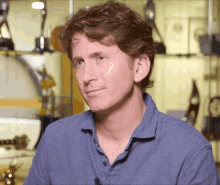Midway-AGNC-
Member
I've been a Nintendo fan for decades, but I can't help feeling frustrated with their current approach to announcing new games and hardware. Lately, it seems like they've adopted a strategy of staying completely silent for months—sometimes even a year—only to suddenly drop news about major titles or hardware updates just weeks before release. And while some might appreciate the surprise, I think it's fair to ask: is this really the best way to handle things?
Nintendo often justifies this by saying they don't want to overhype games too early or risk delays that disappoint fans. They've even pointed to cases like Metroid Prime 4, which was first announced back in 2017, then restarted from scratch in 2019, and only recently received a proper re-reveal with a release window. Sure, it's finally coming, but that initial early announcement is exactly what they now claim to avoid. So using it as a reason for late reveals feels a bit contradictory.
Meanwhile, companies like Sony often announce games years in advance—but at least fans know what's in the pipeline. There's transparency, conversation, and a sense of direction. With Nintendo, we're usually left in the dark, refreshing Direct schedules and social media accounts, hoping for any news. The sudden reveals might work for remakes or smaller titles, but for major franchises and new hardware, it feels like fans deserve more clarity.
And that brings me to another big issue: the vacuum of information this strategy creates. Just look at the months leading up to the expected announcement of the Switch successor. Fans, developers, and the press were left guessing, speculating, and grasping at rumors—because Nintendo wouldn't confirm anything. That level of secrecy doesn't just frustrate fans, it creates confusion in the market and among third-party partners. There's a fine line between "surprising your audience" and leaving them completely in the dark.
On top of that, we're now seeing game prices creeping up to $80–$90 USD. That's a big leap—especially for a company that's historically positioned itself as more accessible and family-friendly. And here's the thing: is this last-minute announcement strategy also being used to avoid backlash? If you only reveal a game or console weeks before launch, there's barely any time for fans to voice concerns or push for change—whether about pricing, features, or performance. It feels like a way to short-circuit community feedback rather than engage with it.
Wouldn't it be better to find a middle ground? Give us a roadmap. Let us know what's coming—even if it's vague or without firm dates. Let people get excited, plan their purchases, and feel connected. The current strategy may protect Nintendo from short-term PR headaches, but in the long run, it risks alienating the very fanbase that made the brand what it is.
What do you all think? Has Nintendo's secretive approach gone too far, or is it still working in today's gaming landscape?
Nintendo often justifies this by saying they don't want to overhype games too early or risk delays that disappoint fans. They've even pointed to cases like Metroid Prime 4, which was first announced back in 2017, then restarted from scratch in 2019, and only recently received a proper re-reveal with a release window. Sure, it's finally coming, but that initial early announcement is exactly what they now claim to avoid. So using it as a reason for late reveals feels a bit contradictory.
Meanwhile, companies like Sony often announce games years in advance—but at least fans know what's in the pipeline. There's transparency, conversation, and a sense of direction. With Nintendo, we're usually left in the dark, refreshing Direct schedules and social media accounts, hoping for any news. The sudden reveals might work for remakes or smaller titles, but for major franchises and new hardware, it feels like fans deserve more clarity.
And that brings me to another big issue: the vacuum of information this strategy creates. Just look at the months leading up to the expected announcement of the Switch successor. Fans, developers, and the press were left guessing, speculating, and grasping at rumors—because Nintendo wouldn't confirm anything. That level of secrecy doesn't just frustrate fans, it creates confusion in the market and among third-party partners. There's a fine line between "surprising your audience" and leaving them completely in the dark.
On top of that, we're now seeing game prices creeping up to $80–$90 USD. That's a big leap—especially for a company that's historically positioned itself as more accessible and family-friendly. And here's the thing: is this last-minute announcement strategy also being used to avoid backlash? If you only reveal a game or console weeks before launch, there's barely any time for fans to voice concerns or push for change—whether about pricing, features, or performance. It feels like a way to short-circuit community feedback rather than engage with it.
Wouldn't it be better to find a middle ground? Give us a roadmap. Let us know what's coming—even if it's vague or without firm dates. Let people get excited, plan their purchases, and feel connected. The current strategy may protect Nintendo from short-term PR headaches, but in the long run, it risks alienating the very fanbase that made the brand what it is.
What do you all think? Has Nintendo's secretive approach gone too far, or is it still working in today's gaming landscape?


